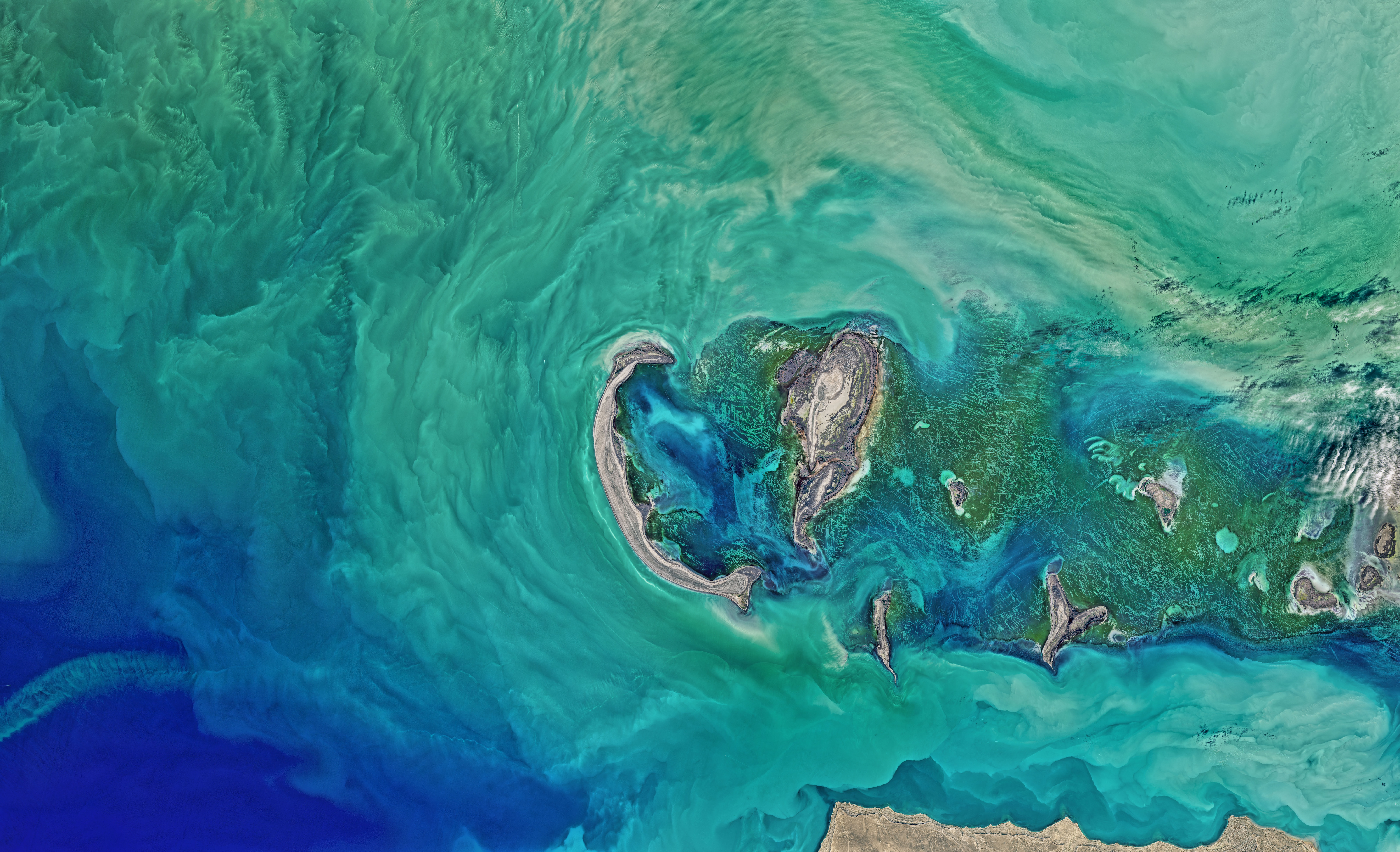Documents
This section features public documents and files uploaded by the stakeholders and custodians of the Caspian Sea environment.
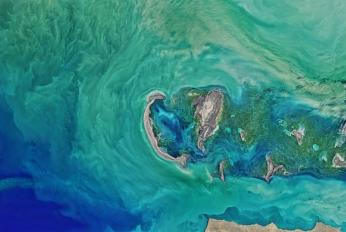 Threats to Biodiversity - Studies and findings of CEP II StudiesSat, 21/12/2024 - 16:41There is a widespread perception that the Caspian is in a state of ecological decline, and that one aspect of this is a decline in biodiversity. This is of particular concern, due to the status of the Caspian as a unique water body inhabited by a large number of endemic species. There is also a widespread belief that the C
Threats to Biodiversity - Studies and findings of CEP II StudiesSat, 21/12/2024 - 16:41There is a widespread perception that the Caspian is in a state of ecological decline, and that one aspect of this is a decline in biodiversity. This is of particular concern, due to the status of the Caspian as a unique water body inhabited by a large number of endemic species. There is also a widespread belief that the C
- Description
There is a widespread perception that the Caspian is in a state of ecological decline, and that one aspect of this is a decline in biodiversity. This is of particular concern, due to the status of the Caspian as a unique water body inhabited by a large number of endemic species. There is also a widespread belief that the Caspian is very sensitive to the impacts of industrial activities and in particular to those associated with oil and gas production and transportation.
- Attached documents
- Metadata
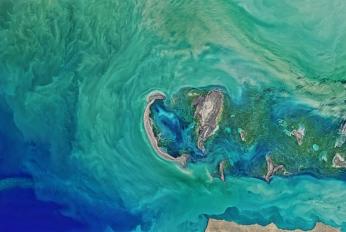 Decline in BioresourcesSat, 21/12/2024 - 16:13The Caspian Sea, world largest lake, is bordered by Republic of Azerbaijan, Islamic Republic of Iran, Kazakhstan, Russian Federation and Turkmenistan. Out of 122 fish species and subspecies living in the Caspian Sea, 40 species are believed to be commercial and presently 25 species are the main exploited fish (Ivanov, 2000).
Decline in BioresourcesSat, 21/12/2024 - 16:13The Caspian Sea, world largest lake, is bordered by Republic of Azerbaijan, Islamic Republic of Iran, Kazakhstan, Russian Federation and Turkmenistan. Out of 122 fish species and subspecies living in the Caspian Sea, 40 species are believed to be commercial and presently 25 species are the main exploited fish (Ivanov, 2000).
- Description
The Caspian Sea, world largest lake, is bordered by Republic of Azerbaijan, Islamic Republic of Iran, Kazakhstan, Russian Federation and Turkmenistan. Out of 122 fish species and subspecies living in the Caspian Sea, 40 species are believed to be commercial and presently 25 species are the main exploited fish (Ivanov, 2000). At present sturgeons, tulka and Caspian Sea seals are considered as shared commercial stocks between Caspian Sea range states.
- Attached documents
- Metadata
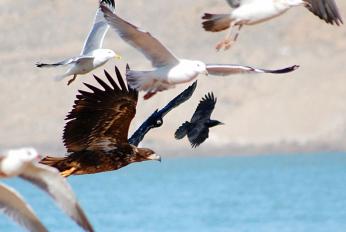 Орнитологические исследования в странах Северной Евразии : тезисы XV Междунар. орнитолог. конф. Северной Евразии, посвящённой памяти акад. М. А. МензбираThu, 23/03/2023 - 08:13Сборник включает 411 тезисов пленарных, симпозиальных и постерных сообщений, а также материалов круглых столов, представленных на XV Международную орнитологическую конференцию Северной Евразии (Минск, 2020). Рассматриваются общие и частные вопросы орнитологии, разрабатываемые учёными из 23 стран Северной Евразии. Представле
Орнитологические исследования в странах Северной Евразии : тезисы XV Междунар. орнитолог. конф. Северной Евразии, посвящённой памяти акад. М. А. МензбираThu, 23/03/2023 - 08:13Сборник включает 411 тезисов пленарных, симпозиальных и постерных сообщений, а также материалов круглых столов, представленных на XV Международную орнитологическую конференцию Северной Евразии (Минск, 2020). Рассматриваются общие и частные вопросы орнитологии, разрабатываемые учёными из 23 стран Северной Евразии. Представле
- Description
Сборник включает 411 тезисов пленарных, симпозиальных и постерных сообщений, а также материалов круглых столов, представленных на XV Международную орнитологическую конференцию Северной Евразии (Минск, 2020). Рассматриваются общие и частные вопросы орнитологии, разрабатываемые учёными из 23 стран Северной Евразии. Представлены результаты исследований по динамике численности и демографии популяций, изменению ареалов видов, региональным фаунам птиц. Обсуждаются вопросы систематики, морфологии, физиологии, оологии, поведения, палеорнитологии, биоакустики, синантропизации птиц и антропогенного воздействия на них, актуальные проблемы охраны видов и популяций, мониторинга сообществ птиц на ООПТ, а также перспективы использования Атласа птиц европейской части России. Освещены проблемы и достижения в области ресурсной, медицинской и любительской орнитологии. Предназначено для широкого круга специалистов и любителей, занимающихся изучением и охраной птиц и их местообитаний.
- Attached documents
- Metadata
- Year
- 2020
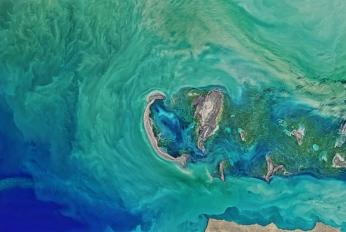 Caspian Sea State of Environment Report - SoE 2 (2019)Fri, 17/02/2023 - 09:15The present report on the State of the Environment of the Caspian Sea was developed in accordance with the requirements of the Framework Convention for the Protection of the Marine Environment of the Caspian Sea (Tehran Convention, 2003) and is one of the regional environmental cooperation mechanisms to assess the state of t
Caspian Sea State of Environment Report - SoE 2 (2019)Fri, 17/02/2023 - 09:15The present report on the State of the Environment of the Caspian Sea was developed in accordance with the requirements of the Framework Convention for the Protection of the Marine Environment of the Caspian Sea (Tehran Convention, 2003) and is one of the regional environmental cooperation mechanisms to assess the state of t
- Description
The present report on the State of the Environment of the Caspian Sea was developed in accordance with the requirements of the Framework Convention for the Protection of the Marine Environment of the Caspian Sea (Tehran Convention, 2003) and is one of the regional environmental cooperation mechanisms to assess the state of the marine environment of the Caspian Sea, in particular, pollution and its impact, based on the reports provided by the Contracting Parties and any competent international organization.
The Caspian Sea SoE 2 Report in higher resolution can be dowloaded here.
- Attached documents
- Metadata
- Year
- 2019
 Caspian Sea State of Environment Report - SoE 1 (2011)Fri, 17/02/2023 - 08:53The Caspian Sea, abundant with natural living and fossil resources, its coastal areas home to more than 15 million people, faces a series of environmental challenges. This State of the Caspian Sea Environment Report should be seen and considered as a first try out and starting point towards the creation of a shared environm
Caspian Sea State of Environment Report - SoE 1 (2011)Fri, 17/02/2023 - 08:53The Caspian Sea, abundant with natural living and fossil resources, its coastal areas home to more than 15 million people, faces a series of environmental challenges. This State of the Caspian Sea Environment Report should be seen and considered as a first try out and starting point towards the creation of a shared environm
- Description
The Caspian Sea, abundant with natural living and fossil resources, its coastal areas home to more than 15 million people, faces a series of environmental challenges.
This State of the Caspian Sea Environment Report should be seen and considered as a first try out and starting point towards the creation of a shared environmental information system promoting and securing data collection, monitoring, analysis, harmonization and public communication in support of full implementation of the Tehran Convention and its protocols. We hope that it will improve the Caspian information base, enhance the quality, accessibility and relevance of data and ultimately, contribute to strengthening the regional environmental governance framework.
The Caspian Sea SoE 1 Report in higher resolution can be dowloaded here.
- Attached documents
- Metadata
- Year
- 2011
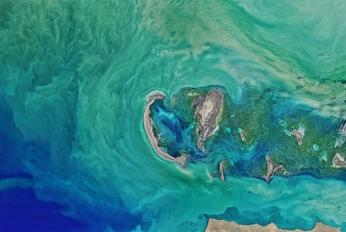 Article - Long-term and seasonal Caspian Sea level change from satellite gravity and altimeter measurementsMon, 16/07/2018 - 15:43The article examines recent Caspian Sea level change by using both satellite radar altimetry and satellite gravity data. The altimetry record for 2002–2015 shows a declining level at a rate that is approximately 20 times greater than the rate of global sea level rise. Seasonal fluctuations are also much larger than in the wo
Article - Long-term and seasonal Caspian Sea level change from satellite gravity and altimeter measurementsMon, 16/07/2018 - 15:43The article examines recent Caspian Sea level change by using both satellite radar altimetry and satellite gravity data. The altimetry record for 2002–2015 shows a declining level at a rate that is approximately 20 times greater than the rate of global sea level rise. Seasonal fluctuations are also much larger than in the wo
- Description
The article examines recent Caspian Sea level change by using both satellite radar altimetry and satellite gravity data. The altimetry record for 2002–2015 shows a declining level at a rate that is approximately 20 times greater than the rate of global sea level rise. Seasonal fluctuations are also much larger than in the world oceans. With a clearly defined geographic region and dominant signal magnitude, variations in the sea level and associated mass changes provide an excellent way to compare various approaches for processing satellite gravity data.
- Attached documents
- Metadata
- Year
- 2017
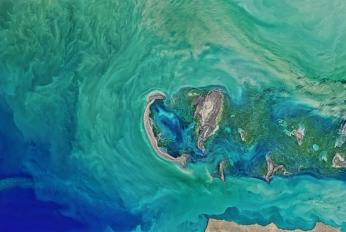 Article - Impact of the Alien Species Mnemiopsis leidyi A. Agassiz, 1865 on Fish of the Caspian SeaMon, 16/07/2018 - 15:13The data of long-term ecological studies (1999–2014) are used for assessing the impact of a new Caspian invader Mnemiopsis leidyi A. Agassiz, 1865 on marine and anadromous fish species. The introduction of the ctenophore and its massive development in the Caspian Sea have mainly affected planktophagous fish, especially the m
Article - Impact of the Alien Species Mnemiopsis leidyi A. Agassiz, 1865 on Fish of the Caspian SeaMon, 16/07/2018 - 15:13The data of long-term ecological studies (1999–2014) are used for assessing the impact of a new Caspian invader Mnemiopsis leidyi A. Agassiz, 1865 on marine and anadromous fish species. The introduction of the ctenophore and its massive development in the Caspian Sea have mainly affected planktophagous fish, especially the m
- Description
The data of long-term ecological studies (1999–2014) are used for assessing the impact of a new Caspian invader Mnemiopsis leidyi A. Agassiz, 1865 on marine and anadromous fish species. The introduction of the ctenophore and its massive development in the Caspian Sea have mainly affected planktophagous fish, especially the most abundant species anchovy sprat (Clupeonella engrauliformis Borodin, 1904) and sturgeons (Family Acipenseridae). Mnemiopsis leidyi is one of the main negative factors preventing the restoration of the populations of Caspian fishes, especially anchovy tyulka. The critical state of the resources of the spawning parts of sturgeon populations (Family Acipenseridae) has been reinforced as a result of the massive development of M. leidyi.
- Attached documents
- Metadata
- Year
- 2018
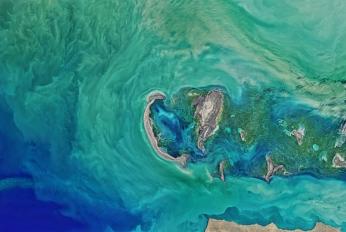 Caspian Environment Programme - Transboundary Diagnostic Analysis Revisit (2007)Tue, 12/06/2018 - 11:59The CEP TDA Revisit was completed in December 2007 following an intensive desk study of materials collected from the second phase of the Caspian Environment Programme. The intention of the CEP TDA Revisit is to provide a follow on review of the priority transboundary issues, to assess the efforts conducted during the CEP Pha
Caspian Environment Programme - Transboundary Diagnostic Analysis Revisit (2007)Tue, 12/06/2018 - 11:59The CEP TDA Revisit was completed in December 2007 following an intensive desk study of materials collected from the second phase of the Caspian Environment Programme. The intention of the CEP TDA Revisit is to provide a follow on review of the priority transboundary issues, to assess the efforts conducted during the CEP Pha
- Description
The CEP TDA Revisit was completed in December 2007 following an intensive desk study of materials collected from the second phase of the Caspian Environment Programme. The intention of the CEP TDA Revisit is to provide a follow on review of the priority transboundary issues, to assess the efforts conducted during the CEP Phase II implementation, and to extrapolate where additional efforts are warranted. The SAP and NСAPs are reviewed followed by an analysis of the priority areas of concern as identified in the SAP. The issues addressed in the TDA are: decline in biodiversity; decline in environmental quality (pollution); decline in bioresources (fisheries); decline in coastal infrastructure and habitat; and impacts of the oil industry in the region. This is supplemented by an analysis of governance mechanisms, socioeconomic conditions in the region, and stakeholder analysis and public involvement strategy.
- Attached documents
- Metadata
- Year
- 2007
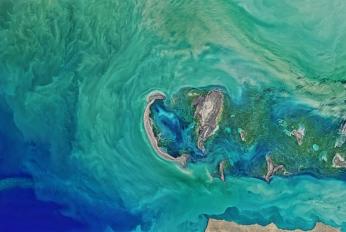 Caspian Environment Programme - Transboundary Diagnostic Analysis for the Caspian Sea. Vol. 2 (2002)Tue, 12/06/2018 - 11:55This volume aims to provide background information on the Caspian Sea in order to support the recommendations in the National Caspian Action Plans (NCAPs) and the Strategic Action Programme (SAP). Thus, this TDA is not merely a State of the Environment report, but also a look into the future based on the current political si
Caspian Environment Programme - Transboundary Diagnostic Analysis for the Caspian Sea. Vol. 2 (2002)Tue, 12/06/2018 - 11:55This volume aims to provide background information on the Caspian Sea in order to support the recommendations in the National Caspian Action Plans (NCAPs) and the Strategic Action Programme (SAP). Thus, this TDA is not merely a State of the Environment report, but also a look into the future based on the current political si
- Description
This volume aims to provide background information on the Caspian Sea in order to support the recommendations in the National Caspian Action Plans (NCAPs) and the Strategic Action Programme (SAP). Thus, this TDA is not merely a State of the Environment report, but also a look into the future based on the current political situation, socio-economic conditions, and legal/regulatory framework.
- Attached documents
- Metadata
- Year
- 2002
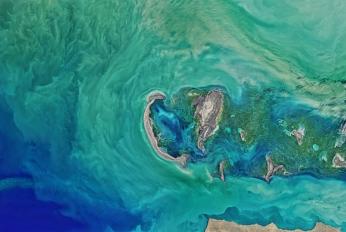 Caspian Environment Programme - Transboundary Diagnostic Analysis for the Caspian Sea. Vol. 1: Executive Summary and Environmental Quality Objectives (2002)Tue, 12/06/2018 - 11:54This TDA relies on and benefits from the dedicated work of numerous individuals, agencies, institutes, projects and corporations. The major building blocks are the studies and research works conducted and carried out by the Caspian Regional Thematic Centres. These works have been mostly produced by the national experts of th
Caspian Environment Programme - Transboundary Diagnostic Analysis for the Caspian Sea. Vol. 1: Executive Summary and Environmental Quality Objectives (2002)Tue, 12/06/2018 - 11:54This TDA relies on and benefits from the dedicated work of numerous individuals, agencies, institutes, projects and corporations. The major building blocks are the studies and research works conducted and carried out by the Caspian Regional Thematic Centres. These works have been mostly produced by the national experts of th
- Description
This TDA relies on and benefits from the dedicated work of numerous individuals, agencies, institutes, projects and corporations. The major building blocks are the studies and research works conducted and
carried out by the Caspian Regional Thematic Centres. These works have been mostly produced by the national experts of the Caspian countries and have been effectively led and substantially assisted by the National Focal Points (NFPs) and the Management Advisory Group and Inter-sectoral Assistants (MAGICAs). Production of the TDA would have not been possible without the efficient project execution assistance of UNOPS. The overall conceptualization, design, production monitoring and editing of the TDA has been led by the Programme Coordination Unit (PCU) including the Data and Information Management Theme in Baku, Azerbaijan.- Attached documents
- Metadata
- Year
- 2002
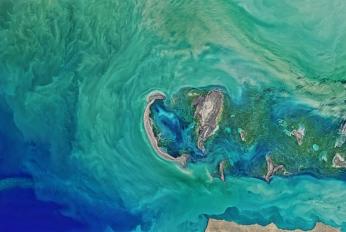 Caspian Environment Programme - Caspian Seal Conservation and Action Plan (2007)Tue, 12/06/2018 - 11:45The seal is the only marine mammal in the Caspian Sea, feeding on tulkas and other small fish, and preyed upon by land animals. It is an endemic species for the Caspian Sea and is vulnerable on that point of view. During its life history the Caspian seal migrates from the frozen North Caspian waters in the winter to the Sout
Caspian Environment Programme - Caspian Seal Conservation and Action Plan (2007)Tue, 12/06/2018 - 11:45The seal is the only marine mammal in the Caspian Sea, feeding on tulkas and other small fish, and preyed upon by land animals. It is an endemic species for the Caspian Sea and is vulnerable on that point of view. During its life history the Caspian seal migrates from the frozen North Caspian waters in the winter to the Sout
- Description
The seal is the only marine mammal in the Caspian Sea, feeding on tulkas and other small fish, and preyed upon by land animals. It is an endemic species for the Caspian Sea and is vulnerable on that point of view. During its life history the Caspian seal migrates from the frozen North Caspian waters in the winter to the South Caspian in the summer timer and back to the North to give birth to the pups on the ice. During these migration time the seals can be found everywhere in the sea.
Active conservation efforts will be required to assure the Caspian seal does not eliminate from the Earth. As a major mammal, anchoring one end of the food web, it also plays an important role in the biodiversity of the Caspian Sea and is a remarkable indicator of the Caspian ecosystems health.
- Attached documents
- Metadata
- Year
- 2007
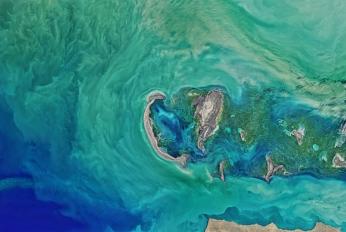 Ural River Delta BrochureTue, 05/06/2018 - 15:10The tourist brochure describes interesting species of flora and fauna of the Ural River Delta and the adjacent coastal zone of the Caspian Sea.
Ural River Delta BrochureTue, 05/06/2018 - 15:10The tourist brochure describes interesting species of flora and fauna of the Ural River Delta and the adjacent coastal zone of the Caspian Sea.
- Description
The tourist brochure describes interesting species of flora and fauna of the Ural River Delta and the adjacent coastal zone of the Caspian Sea.
- Attached documents
- Metadata
- Year
- 2018
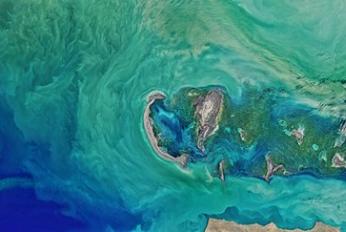 Article - Assessing the sensitivity of Caspian Kutum - Rutilus kutum- and the endangered Caspian trout - Salmo trutta caspius - to acute toxicity of nonylphenolMon, 23/04/2018 - 19:24Toxicity tests are commonly used as a tool to determine the standards of water quality for chemicals and to discover appropriate organisms as bioindicators in toxicological studies, and also could be used as an essential tool for evaluation of the pollutant effects in aquatic ecosystems. The aim of the present study was to e
Article - Assessing the sensitivity of Caspian Kutum - Rutilus kutum- and the endangered Caspian trout - Salmo trutta caspius - to acute toxicity of nonylphenolMon, 23/04/2018 - 19:24Toxicity tests are commonly used as a tool to determine the standards of water quality for chemicals and to discover appropriate organisms as bioindicators in toxicological studies, and also could be used as an essential tool for evaluation of the pollutant effects in aquatic ecosystems. The aim of the present study was to e
- Description
Toxicity tests are commonly used as a tool to determine the standards of water quality for chemicals and to discover appropriate organisms as bioindicators in toxicological studies, and also could be used as an essential tool for evaluation of the pollutant effects in aquatic ecosystems. The aim of the present study was to evaluate the sensitivity of two Caspian fish species, Caspian trout as an endangered species and Caspian Kutum using the static acute toxicity in response to nonylphenol, which is widely discharged into the Caspian Sea environment.
In addition, Caspian trout was approximately 6 times more sensitive than Caspian Kutum. Nonylphenol was reflected to be "highly toxic" to Caspian trout and "moderately toxic" to Caspian Kutum. The results could be considered in preparing plans for conservation and restocking management of Caspian Kutum and the endangered Caspian trout.
- Attached documents
- Metadata
- Year
- 2013
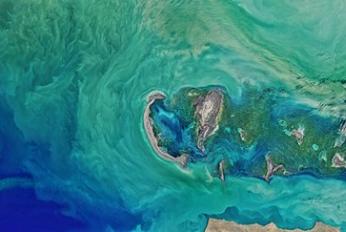 Article - Effects of Caspian Sea water level fluctuations on existing drainsMon, 23/04/2018 - 19:18This study is an attempt to develop an integrated methodology to predict the impact of the Caspian Sea on flooding using Geographic Information Systems (GIS) and hydrodynamic modeling. A rise in the sea level might lead to major flooding events, and have a severe impact on the spatial development of cities and regions. The f
Article - Effects of Caspian Sea water level fluctuations on existing drainsMon, 23/04/2018 - 19:18This study is an attempt to develop an integrated methodology to predict the impact of the Caspian Sea on flooding using Geographic Information Systems (GIS) and hydrodynamic modeling. A rise in the sea level might lead to major flooding events, and have a severe impact on the spatial development of cities and regions. The f
- Description
This study is an attempt to develop an integrated methodology to predict the impact of the Caspian Sea on flooding using Geographic Information Systems (GIS) and hydrodynamic modeling. A rise in the sea level might lead to major flooding events, and have a severe impact on the spatial development of cities and regions. The feasibility of simulating a flood event along a drain channel is evaluated near residential development areas along the Chapakroud drain.
The study shows that at these elevations environmental and social problems arise with regards to the drain. The results also indicate that GIS is an effective tool for floodplain visualization and analysis. It should be noted that the mixture of salt and soft water, as a result of rising sea water level, is a problem that was not investigated in this study and should be examined in the future.
- Attached documents
- Metadata
- Year
- 2011
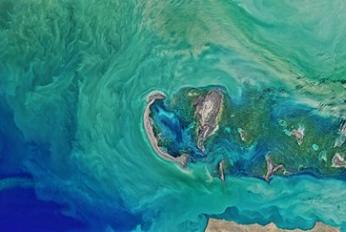 Biodiversity of the North East Caspian regionMon, 23/04/2018 - 18:44This brochure has been produced on behalf of the consortium developing the hydrocarbon deposits beneath the North East Caspian defined under the North Caspian Sea Production Sharing Agreement of 1997. The concession area lies in a region of rich biodiversity recognized as being of international importance for its wildlife,
Biodiversity of the North East Caspian regionMon, 23/04/2018 - 18:44This brochure has been produced on behalf of the consortium developing the hydrocarbon deposits beneath the North East Caspian defined under the North Caspian Sea Production Sharing Agreement of 1997. The concession area lies in a region of rich biodiversity recognized as being of international importance for its wildlife,
- Description
This brochure has been produced on behalf of the consortium developing the hydrocarbon deposits beneath the North East Caspian defined under the North Caspian Sea Production Sharing Agreement of 1997.
The concession area lies in a region of rich biodiversity recognized as being of international importance for its wildlife, including several species that are classified as endangered. The widely varying conditions in the North East Caspian include extreme seasonal temperature variations, long-term sea level change, short-term sea surges and retreats, high levels of turbidity and sediment movement, ice cover in winter and scouring of the seabed by moving ice.
This dynamic environment presents challenges for those who live and work in the area. It also means that the fauna and flora on land and at sea, are adapted to a significant level of environmental stress from continually changing physical conditions.
- Attached documents
- Metadata
- Year
- 2015
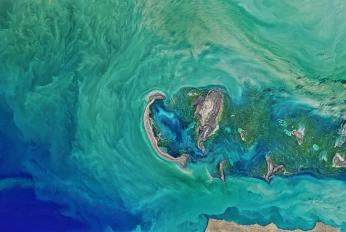 Article - Review of the status of invasive species, with special focus on the most invasive species Mnemiopsis leidyi A.Agassiz, 1865 and their effects on the Caspian ecosystemSun, 22/04/2018 - 16:13The main focus of review: To determine the Status of invasive species with special attention to the most aggressive invader Mnemiopsis leidyi in the Caspian Sea. Objectives: 1. To assess vectors, pathways of invasive species introduction, their composition and their role in the Caspian ecosystem. 2. To analyze seasonal an
Article - Review of the status of invasive species, with special focus on the most invasive species Mnemiopsis leidyi A.Agassiz, 1865 and their effects on the Caspian ecosystemSun, 22/04/2018 - 16:13The main focus of review: To determine the Status of invasive species with special attention to the most aggressive invader Mnemiopsis leidyi in the Caspian Sea. Objectives: 1. To assess vectors, pathways of invasive species introduction, their composition and their role in the Caspian ecosystem. 2. To analyze seasonal an
- Description
The main focus of review: To determine the Status of invasive species with special attention to the most aggressive invader Mnemiopsis leidyi in the Caspian Sea.
Objectives:
1. To assess vectors, pathways of invasive species introduction, their composition and their role in the Caspian ecosystem.
2. To analyze seasonal and interannual dynamics of the Mnemiopsis leidyi population in the all areas of the Caspian Sea; its impacts on the Caspian ecosystem including food recourses (zooplankton) and fish stocks along with other emerging environmental threats such as increased nutrient load from the coast, structural and quantitative changes in phyto-and-zooplankton communities, the appearance of harmful algal bloom (HAB) in the Southern Caspian.
3. To prepare recommendations for follow-up actions on invasive species management: - for the protection and control of the Caspian Sea from any sources of accidental invasive species introductions - for possibility of biological control of invader Mnemiopsis leidyi.
The primary source of this Review has been national reports from every of the five Caspian littoral countries, which included results of national observations of ecosystem state and biodiversity of the Caspian Sea. But due to fragmental data of the national observations on invasive species
- Attached documents
- Metadata
- Year
- 2011
Document
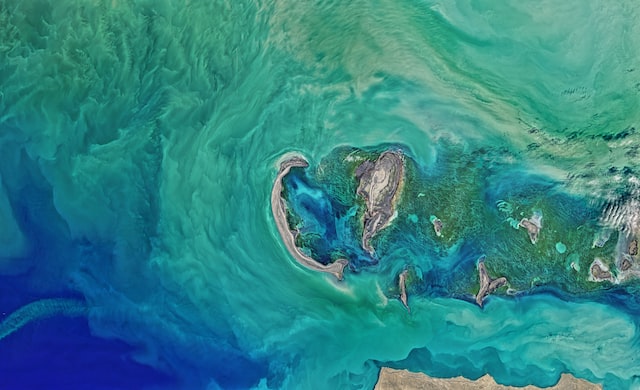
Threats to Biodiversity - Studies and findings of CEP II Studies
Document
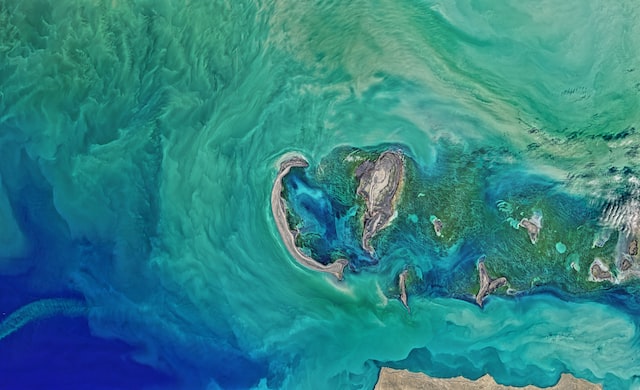
Decline in Bioresources
Document
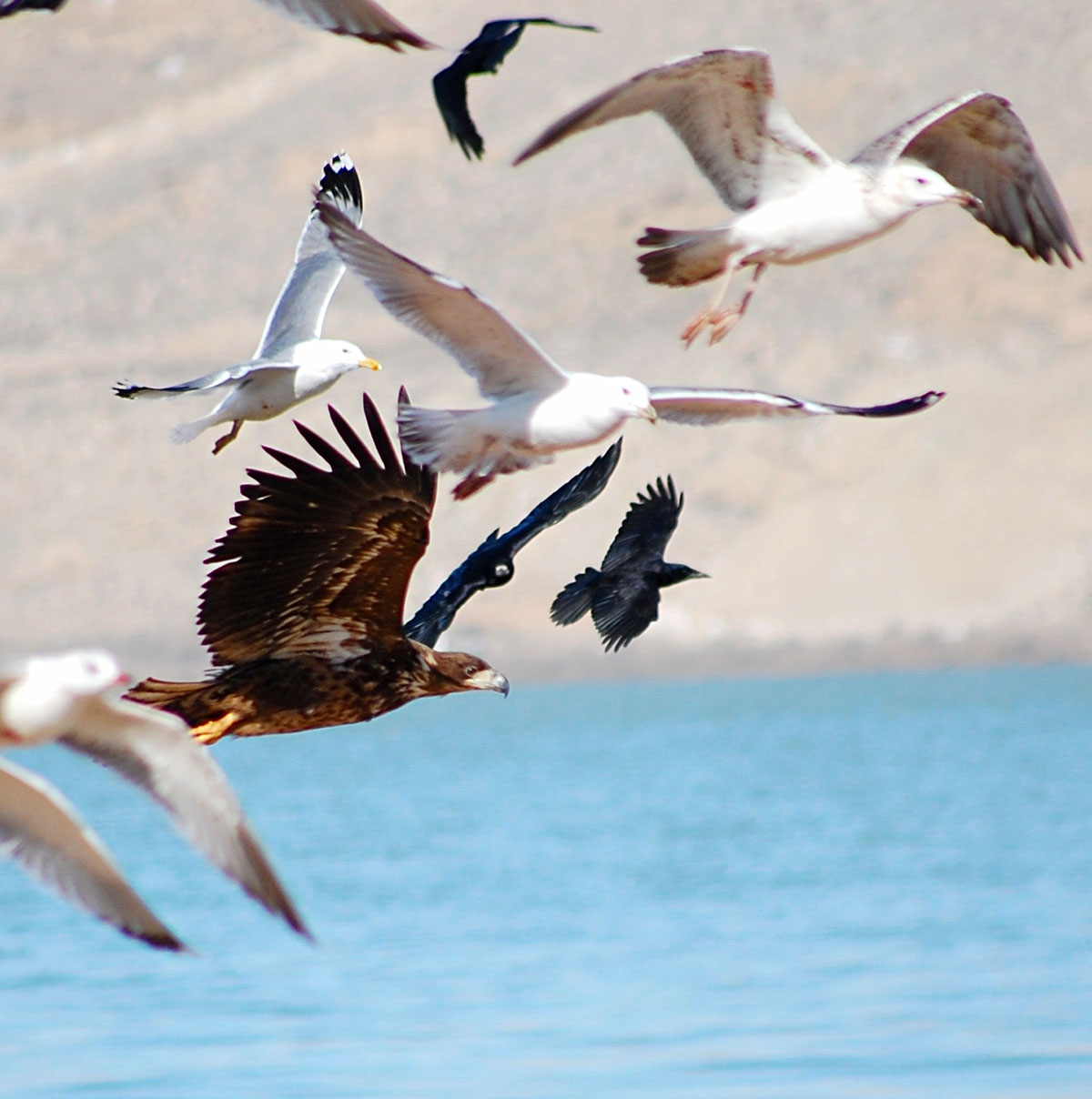
Орнитологические исследования в странах Северной Евразии : тезисы XV Междунар. орнитолог. конф. Северной Евразии, посвящённой памяти акад. М. А. Мензбира
Document
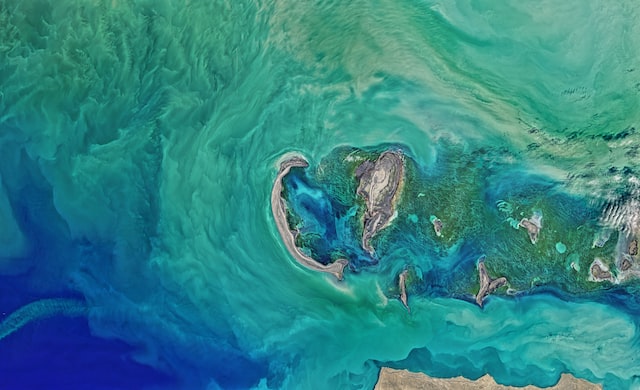
Caspian Sea State of Environment Report - SoE 2 (2019)
Document

Caspian Sea State of Environment Report - SoE 1 (2011)
Document
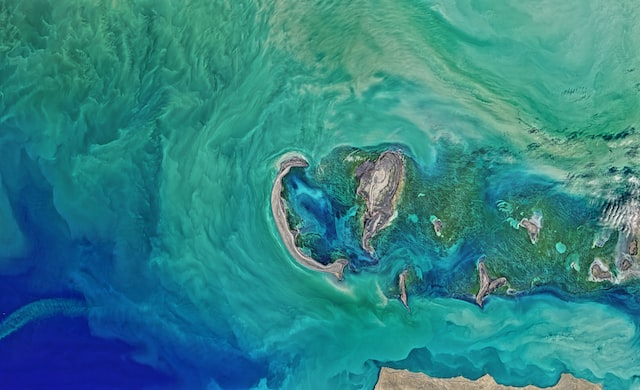
Article - Long-term and seasonal Caspian Sea level change from satellite gravity and altimeter measurements
Document
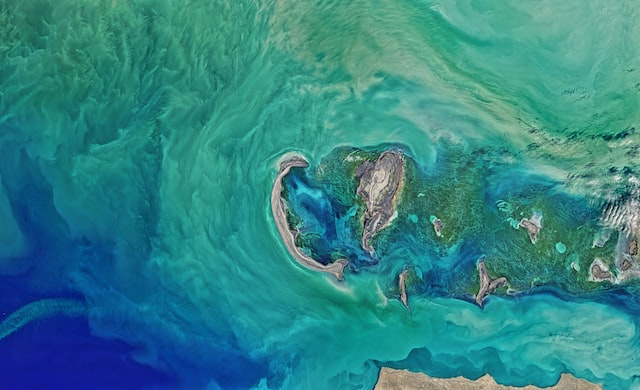
Article - Impact of the Alien Species Mnemiopsis leidyi A. Agassiz, 1865 on Fish of the Caspian Sea
Document
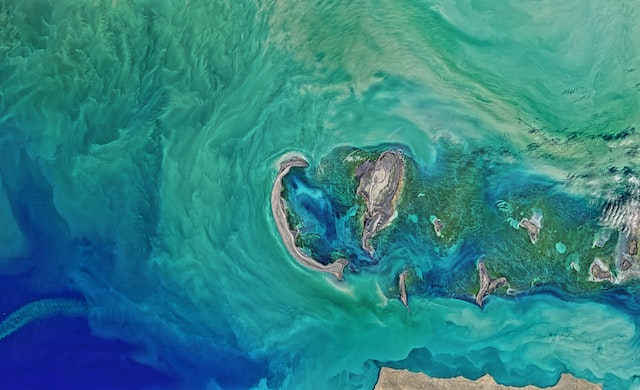
Caspian Environment Programme - Transboundary Diagnostic Analysis Revisit (2007)
Document
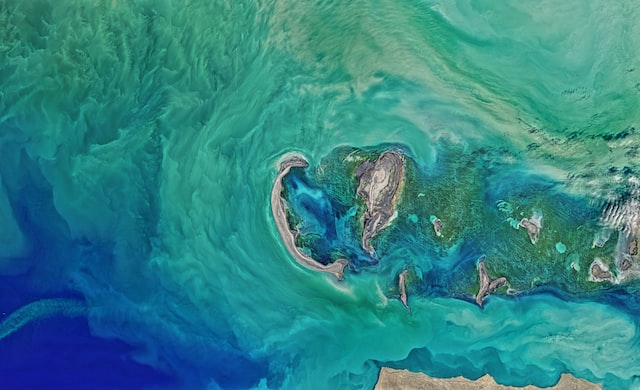
Caspian Environment Programme - Transboundary Diagnostic Analysis for the Caspian Sea. Vol. 2 (2002)
Document
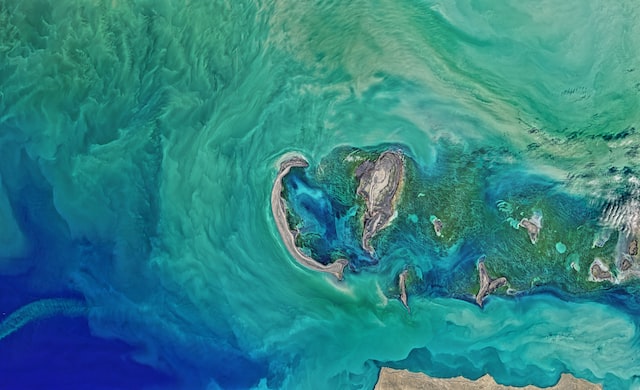
Caspian Environment Programme - Transboundary Diagnostic Analysis for the Caspian Sea. Vol. 1: Executive Summary and Environmental Quality Objectives (2002)
Document
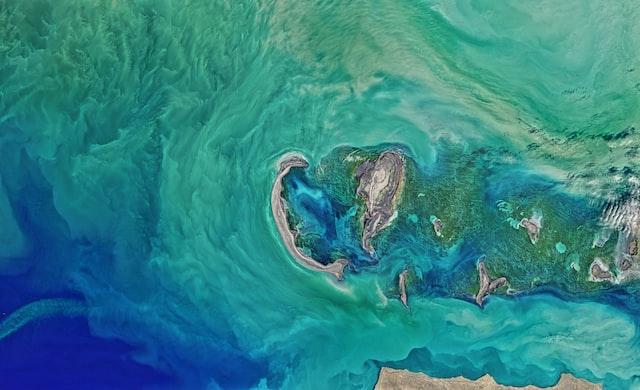
Caspian Environment Programme - Caspian Seal Conservation and Action Plan (2007)
Document
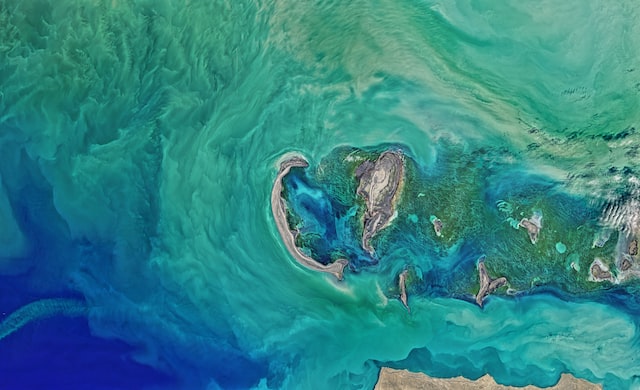
Ural River Delta Brochure
Document
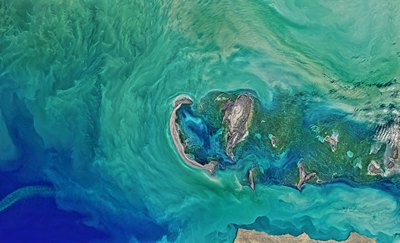
Article - Assessing the sensitivity of Caspian Kutum - Rutilus kutum- and the endangered Caspian trout - Salmo trutta caspius - to acute toxicity of nonylphenol
Document
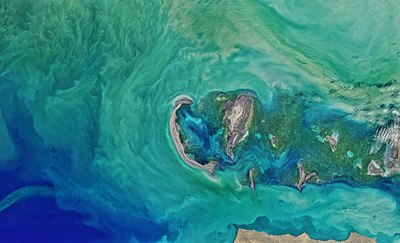
Article - Effects of Caspian Sea water level fluctuations on existing drains
Document
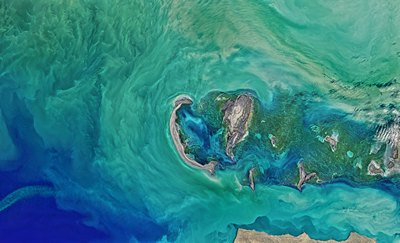
Biodiversity of the North East Caspian region
Document
